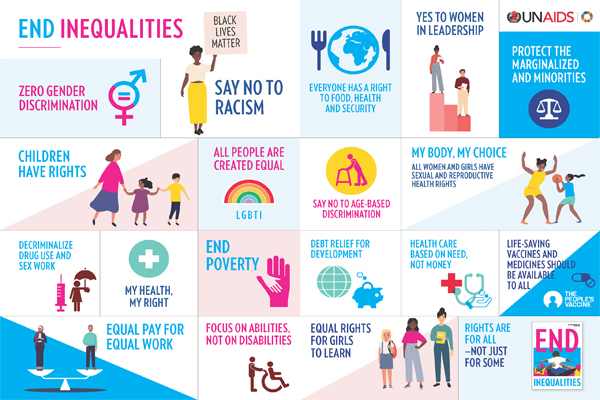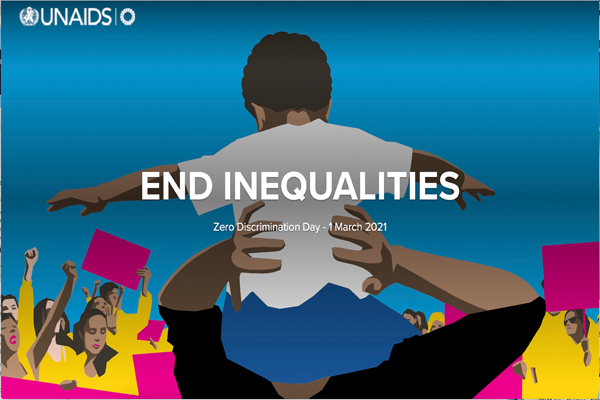Today we celebrate Zero Discrimination Day, which is observed every year on 1st March by the United Nations and other international institutions.
Inequality is growing for more than 70% of the global population, exacerbating the risk of division; and hampering economic and social development, according to UNAIDS. Zero Discrimination Day 2021 highlights the urgent need to take action to end all inequalities that are prevalent around the world; surrounding income, sex, age, health status, occupation, disability, sexual orientation, drug use, gender identity, race, class, ethnicity and religion.
This year inequalities and discrimination worldwide have been exacerbated by the pandemic. Several studies have confirmed that the pandemic has hit the most vulnerable people the hardest. Although new vaccines against Covid-19 are becoming available, there is also huge inequality in accessing them, which many equate to vaccine apartheid, notes UNAIDS.
TACKLING INEQUALITY & DISCRIMINATION
Zero Discrimination Day was launched by UNAIDS Director Michel Sidibé on World Aids Day in December 2013. It was first observed back in 2014 to combat discrimination against people living with HIV/AIDS. Its remit has now widened to end all inequality and discrimination, especially those faced by disadvantaged groups.
As well as being core to ending AIDS, tackling inequality will advance the human rights of people who are living with HIV; enable societies to beat Covid-19 as well as other pandemics; and support economic recovery and stability.

ENDING INEQUALITY FOR ALL
In 2015, all countries pledged to reduce inequality within and between countries as part of the UN’s Sustainable Development Goals. But it is not yet one that the world has delivered on. Fulfilling the promise to tackle inequality will save millions of lives and benefit society as a whole. However, UNAIDS believes that ending inequality requires transformative change.
Governments need to work harder to eradicate extreme proverty and hunger by investing more in health, education, social protection and decent jobs, according to the UN. They must promote inclusive social and economic growth; and eliminate discriminatory laws, policies and practices in order to ensure equal opportunity and reduce inequalities.
UNAIDS wants everyone – including individuals and organisations – to play their part to put a stop to discrimination and inequality worldwide. How? Call out discrimination where you see it. Set an example by addressing it. Demand that your government fulfils its commitments and obligations to end all forms of discrimination and inequality. Click here for more information.








































